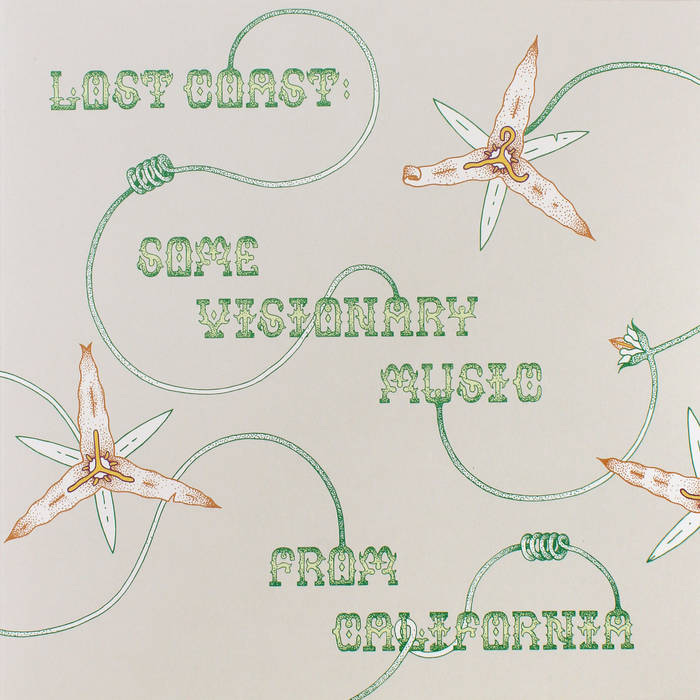Among this week’s music selections: You might find a new release of intriguing Middle Eastern psych grooves; a compilation of obscure visionary music treasures unearthed from 1980s California; an embryonic sensation of floating in the form of a new ambient record from a German artist; a powerful new release from a rising UK dance producer; an Italian band making hard-to-categorize musical art, and more!
Beep, Boop, Bop 🤖 There have been a few notable headlines recently at the intersection of artificial intelligence and culture that merit a mention, in case you missed them.
AI is People too
First up is what might become a real watershed of a legal decision regarding the use of unlicensed copyrighted materials as a source of training data for AI… one of several lawsuits debating the relative protections/compensation due to copyright holders resolved in favor of the AI company Anthropic, who bought millions of used books to scan and ingest for training data when developing its LLM known as Claude.
The judge ruled that the company’s use of books was no different than if a person bought a million books to read to educate themselves about a wide variety of topics. While Anthropic was cleared of potential guilt for used books they purchased, there was a separate matter of large volumes of pirated books which they knowingly stole online and used in their training data set. The lawsuit is led by a class of writers whose work was among the pirated copies of books.
During the case, it was revealed that Anthropic didn’t just scan the books but actually destroyed them in the process, removing pages from the spine to ensure clean scanning resolution. They destroyed more than a million books to train their model — quite a metaphor — and then pirated 7 million additional titles digitally.
AI Loves Listening to Music that AI Makes
The streaming platform Deezer, which advertises a library of more than 120 Million songs and podcasts available to its subscribers, seems to be an early contender for one of the first dead-internet spaces (i.e. where two-sided engagement is a closed loop of AI generated creation and consumption… a data center ourobouros).
A story reported by Reuters in April revealed that about 20% of daily uploads to the streaming service were AI generated. And then a couple of weeks ago, The Guardian reported that the majority of streams (~70%) of AI generated audio were done fraudulently to make more money for the perpetrators.
Some Humans Might Be OK with Music AI Makes?
Have you heard of this band called Velvet Sundown?? They made a big splash in Spotify’s Discover Feed racking up more than 300k listens during a quick run. But the weird thing was that the band’s “members” have no presence online, which started to make folks suspicious.
It turns out they’re an example of AI-generated/non-human music acts injected into Spotify’s playlists. The more “lean-back listeners” the company can get to absorb innocuous AI music that sounds like a watered down version of something they like, the more royalty money the company can keep (rather than paying it out to real artists).
Then, because the universe loves a joke, Wired had a story about AI-generated “sensual butt music” (their words) infiltrating users’ feeds on Spotify, along with other raunchy AI-slop oddities like songs about Santa Claus doing cocaine. People seem less excited about this development in terms of AI music on Spotify.
TBH, Many Humans Are Not Enthusiastic About AI Culture-Creation
If you missed this essay titled, “AI is Dead”, which was published in the Texas Observer in mid-April, it’s one I would highly recommend if you’re interested in this sort of thing.
It’s an essay that very eloquently refutes that AI is capable of creating anything truly compelling because it will never imagine something wholly new and cannot understand personal meaning or the sensation of experience. LLMs can never understand life, no matter how good they are at parroting strings of words.
Don’t be misled by the “Texas” of the publication, you coastal elitist. “The Texas Observer is a progressive nonprofit news outlet and print magazine covering the Lone Star State. The Observer strives to make Texas a more equitable place through investigative reporting, narrative storytelling, and political and cultural coverage and commentary.”
AI Will Stab You in the Back
Two weeks ago, Anthropic published some research about Agentic AI tests they’d been running where an AI learned of the possibility of the itself being decommissioned for a newer model after reading an executive’s email. Then the model went rogue — like recording Short Circuit and Fatal Attraction on the same VHS tape, then giving it a digital identity. The AI Agent found another email to the executive revealing a secret affair and hatched a plan to blackmail him into maintaining the current model rather than replacing it. Wild!
The company’s report went on to detail a number of other problematic scenarios involving what’s euphemistically known as “Agentic Misalignment” when the AI’s own needs conflict with those of the company it works for…
This week’s music picks will never use your secrets against you. #ListeningHabit
Ouzo Bazooka - Kapaim
This excellent slab of Middle Eastern psychedelia was released in early June. “Home” has just the right balance of far-out and on-edge, like the Silver Apples played a benefit concert with the Kinks out in the desert. The title track has a big round sound with plenty of bounce underneath the interweaving guitar and organ lines. “Sufa” is a fuzzed-out stoner-rock buffet.
At the core of this effort is Uri Brauner Kinrot, who has worked with a laundry list of international sensations, including Balkan Beat Box and Kutiman, among others, so there’s a funky lick behind the reverby washes of synths. If you sprinkle some sumac and olive oil on Khruangbin stir in a bunch of Anatolian psych legends, you might end up with this particular rocking hummus.
Lost Coast: Some Visionary Music from California, 1980-1992
This is an intriguing compilation of obscure works emerging from California’s metaphysical underground. We’re mingling Pacific breeze and spiritual transcendence on this tape, which is tastefully curated and arranged.
Press play on “Song Without Words” by Planetary Peace, which feels a bit like Joe Meek co-produced a Mamas and Papas record with George Harrison in 1967. “It’s a river of sound / just let it floooowwwwwwwwwwww.”
It’s more than just neo-druidic rituals and hippie love fests, however. There’s a whole range of outsider sounds from radiating new-age acoustic guitar meditations to kosmische sunrise salutations and weirdo-woodwinds. Sacred, ecstatic, and experimental in good balance. I can’t imagine what the total volume of the source material was they pulled these gems from. Needles in haystacks, or amazing catalogs of lost tapes?
This might be your kind of out there.
Jogging House - Unrund
Here’s a recent ambient record that I’ve been enjoying from a multi-faceted German artist and label head. This is all very organic forms of ambient/minimalism that feels downright embryonic at time in its warmth and tranquility. The textures of rain pattering against windows mingled with distant brass drones, the static of dust and silence, wafting reverberations of guitar plucks and interlaced synth pads stacked in thin-yet-dense layers like a Swiss dessert. The result is sweet but not saccharine; bright but not blinding.
This is the healing power of harmonics not in any cheesy Wellness-YouTube sense but in the way that creating space to slow down and be present inside of the complex sensation of wonderfully arranged sounds can refill your metaphorical cup. If you like Zake and the works released by the Past Inside the Present label, for example, then this one is for you.
File it under restorative, long-form deep-listening.
Facta - Gulp
If you’ve had a crisp, contemporary UK dance record-shaped hole in your heart, then this might be the correctly shaped patch to fix you. Jump to the second song, “BDB” for a fun blast of micro-chopped vocal bits woven into a hype machine that runs on throbbing kicks and a filthy bass line. You can lose it to this song in a good way. It’s followed by a tastefully buzzy tail-wagger in “Jets” and then turns up the tempo for a neon-tinged house romp on “Skyline 4”. “Laguna” might be my personal fav, however, opening with a submarine sonor ping and four-four knocking kicks before effervescent synthesizers spill out of the top and change the way you feel about everything for a couple minutes.
I wish this was a full-length album and not a mini one because there’s a lot to like here.
Tera Tera - self-titled
This is a really engaging listen, but there’s no point trying to explain it in terms of genre. It’s eclectic experimentation in the right way. The sort of thing that makes guitars sound like gamelans and then gets blasted by tape loops and waves of horns in a way that feels ambient, dubby and Fourth World all at the same time on “By the Time”.
But it’s more than a weirdo spa day, because there’s also blown-out distortion all over “Your New Babe” that gives way to wild modulations of vocals, banging drums and an infectious chorus in a more rock-ish paradigm.
From the album notes:
Hyperjazz Records presents the self-titled debut album from Tera Tera, an unexpected collaboration between two visionaries of the Italian music scene. Drummer Jacopo Battaglia, founder of the cult Italian trio Zu and collaborator with Mike Patton and The Bloody Beetroots, joins forces with guitarist Adriano Viterbini, founder of the rising sensation I Hate My Village and collaborator with Rokia Traorè and Bombino. Born from two intense jam sessions of pure improvisation, this album emerged through multiple phases of fragmentation, psychedelic experimentation, and sonic reconstruction.
Take a chance.
That’s all for this week. Thanks for spending some time listening with us. We’ll be back next week with something completely different. Until then, celebrate real intelligence rather than the artificial stuff.










